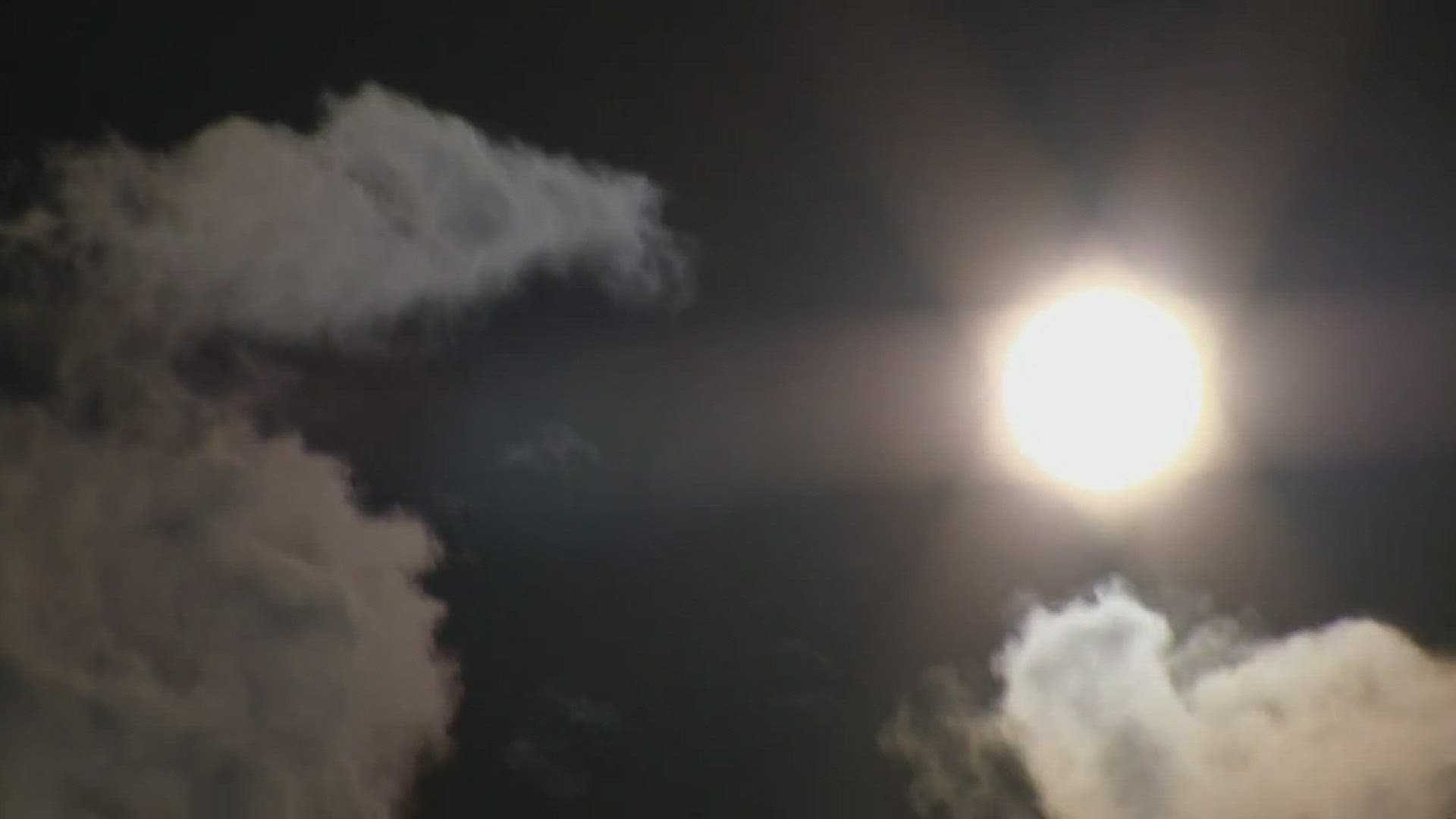LITTLE ROCK, Ark. (KTHV) -- In 1918, Arkansas saw a near total solar eclipse. Almost 100 years later, the state will see it again. At 11:47 Monday morning, the moon will make its gradual pass across the sky.
Dr. Tony Hall, Associate Professor of Physics and Astronomy at the University of Arkansas at Little Rock, explained what a solar eclipse is.
“It's actually when the moon passes between the Earth and the Sun, so we see a shadow of the moon being cast upon the Earth,” said Dr. Hall.
He said solar eclipses are rare. In the last 100 years, there have been 230 solar eclipses around the world. 30 of those happened in the U.S. Dr. Hall explained what the skies will look like.
“It'll look like heavy cloud cover, but it'll be different because it's not covering the whole sky,” said Dr. Hall.
He said it will not look like night time. Also, the temperature will not see a drastic drop.
“We might expect the temperature to drop a couple of degrees,” said Dr. Hall.
Stars will not be visible.
“Although, depending on the conditions, we might be able to see Venus,” said Hall.
As the countdown to the Eclipse gets closer and closer, the excitement continues to build up. Dr. Hall plans to go to St. Louis to see this piece of history.
“I'm really excited personally to get to see the total eclipse and looking forward to 2024 even, when it gets to come here to our home,” said Hall.
If you happen to miss this eclipse, two more will happen in 2024 and 2045.

